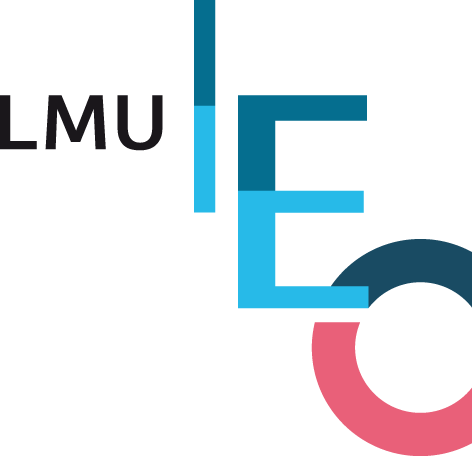Prototype V2
Get the data you want, set custom duty cycles and interrupts.

-
Heart Rate, Heart Rate Variability & SpO2
8hz - 4.000hz
-
Acceleration, Gyroscope and Magnetometer (IMU 2x)
4.4hz - 1125hz
-
GNSS (GPS, BDS, GLONASS, Galileo, QZSS, SBAS)
1hz - 10hz
-
Temperature & Humidity
0.0083hz - 5hz
-
Skin Temperature
0.0625hz - 64hz
-
Other
2 core MCU, Barometer/Altimeter, BLE, 4-64GB Storage, UCB-C, 4 Buttons, 400-600 mAh battery.
Project NeoSoma
Privacy
Your health data reveals highly sensitive information about your physical and mental condition, daily habits, and lifestyle. If misused, it can enable discrimination, profiling, or unwanted surveillance by employers, insurers, or third parties.
Control
Staying in control of your data means you decide exactly who sees what. Our platform empowers you to share only the information you choose, keeping your digital health footprint as small as you want.
Access
You should have direct, seamless access to your own health data—without restrictions, lock-ins, or hidden barriers. We make your data transparent and accessible so you can use it for research, care, or personal insight whenever you need it.
Cost
Many health platforms hide essential features behind paywalls or expensive subscriptions. We focus on keeping costs low by using open, efficient technology—making health tracking and research tools accessible to everyone.
Our goal is to build an open access health tracker that gives for full control over the device and sensors. Creating a platform for researchers and companies to set sampling rates, duty cycles and custom firmware without having to build any hardware and giving control and privacy back to consumers over their health data using open source firmware and apps.
Build for...
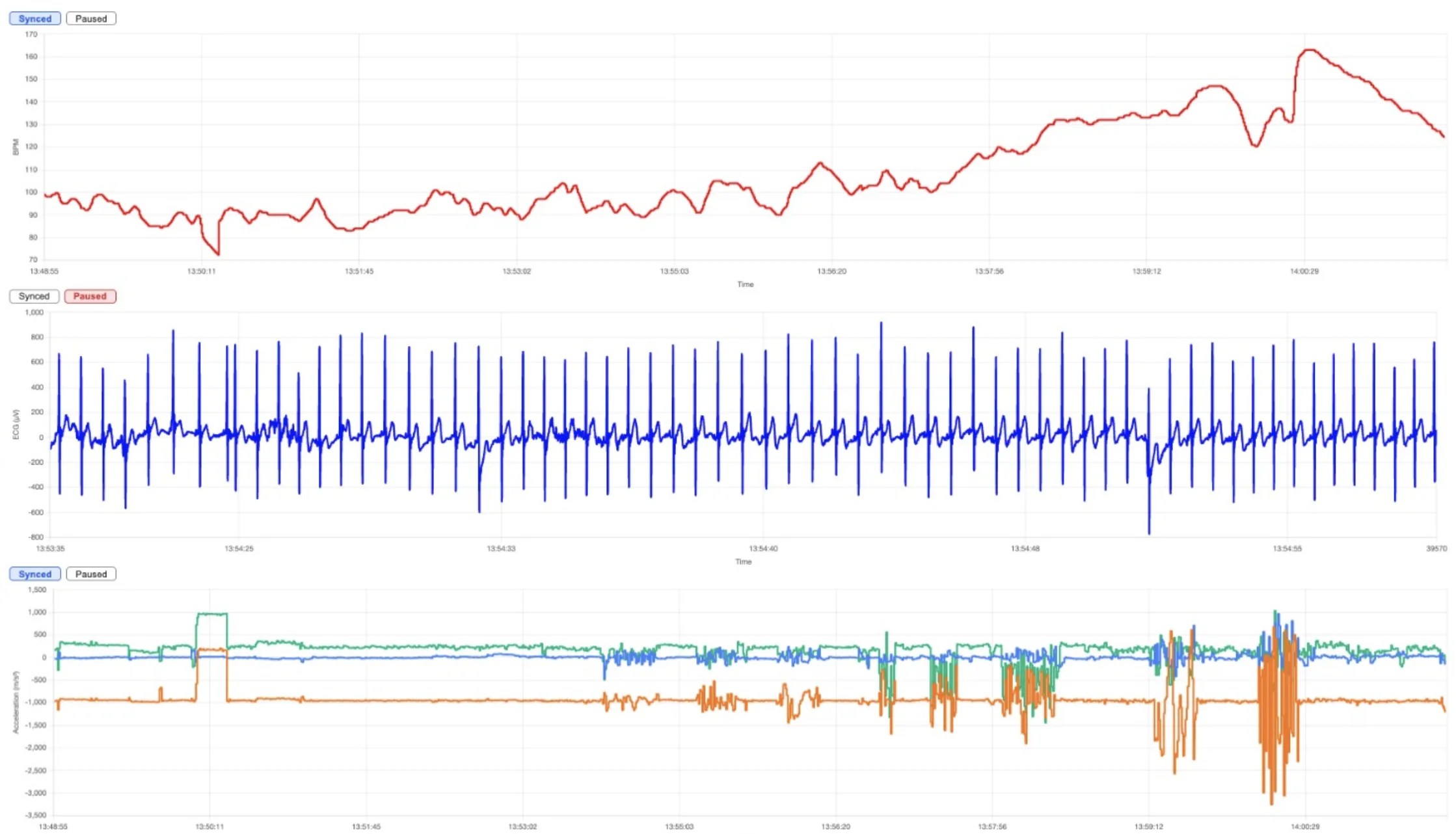
Researchers
Get the data you need when and how you want it. Full access for recording and streaming raw sensor data and duty cycles & sampling rates of sensors. Run your own firmware or use our open source software.
Privacy Concerned Consumers
Don’t want your private health data to be shared into the cloud or analyzed? No problem, your device, your data. Stay in control, using open source software for device firmware and smartphone application.

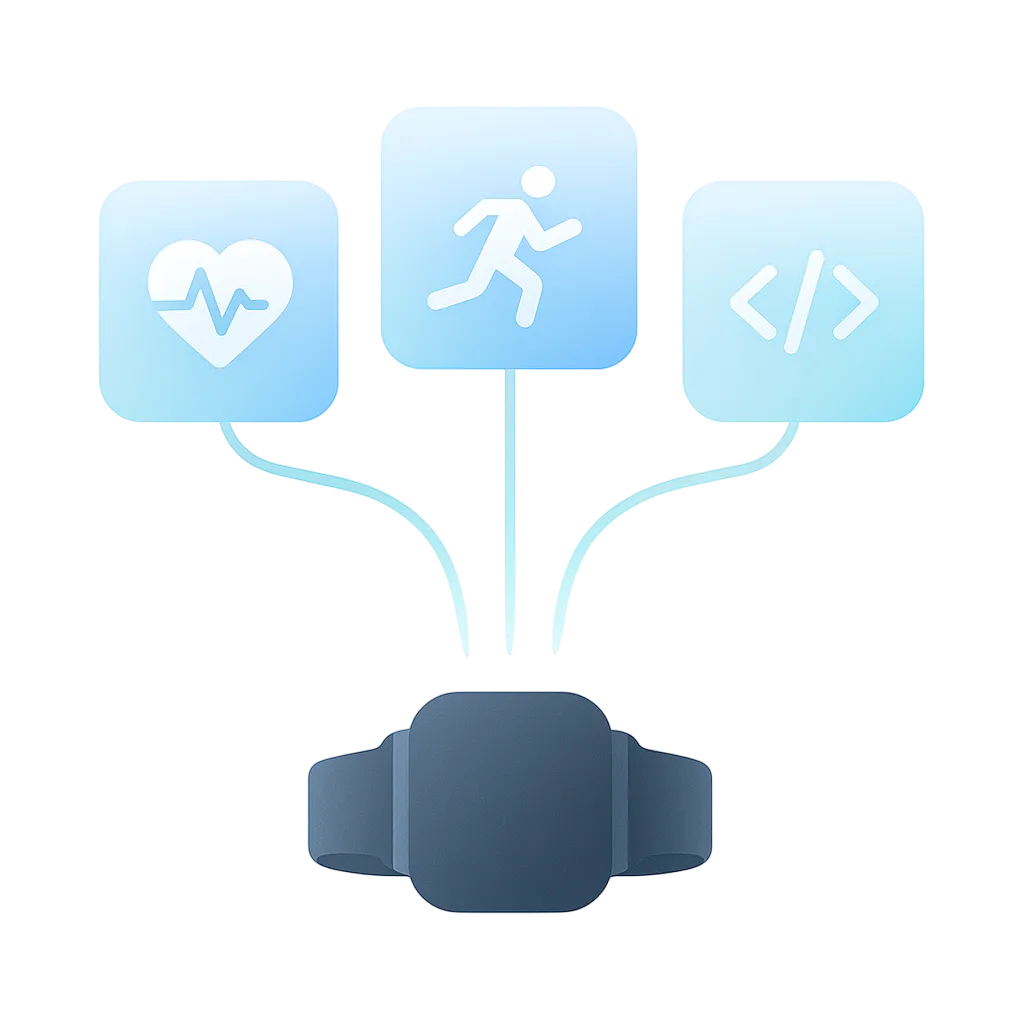
Startups
Looking for a wearable device to build custom software or as a base platform to include new sensors and that can be scaled? We have you covered, no need to build your own hardware or pay thousands per device. Use your customs operating system or integrate with the Neo platform.
Prototype Timeline
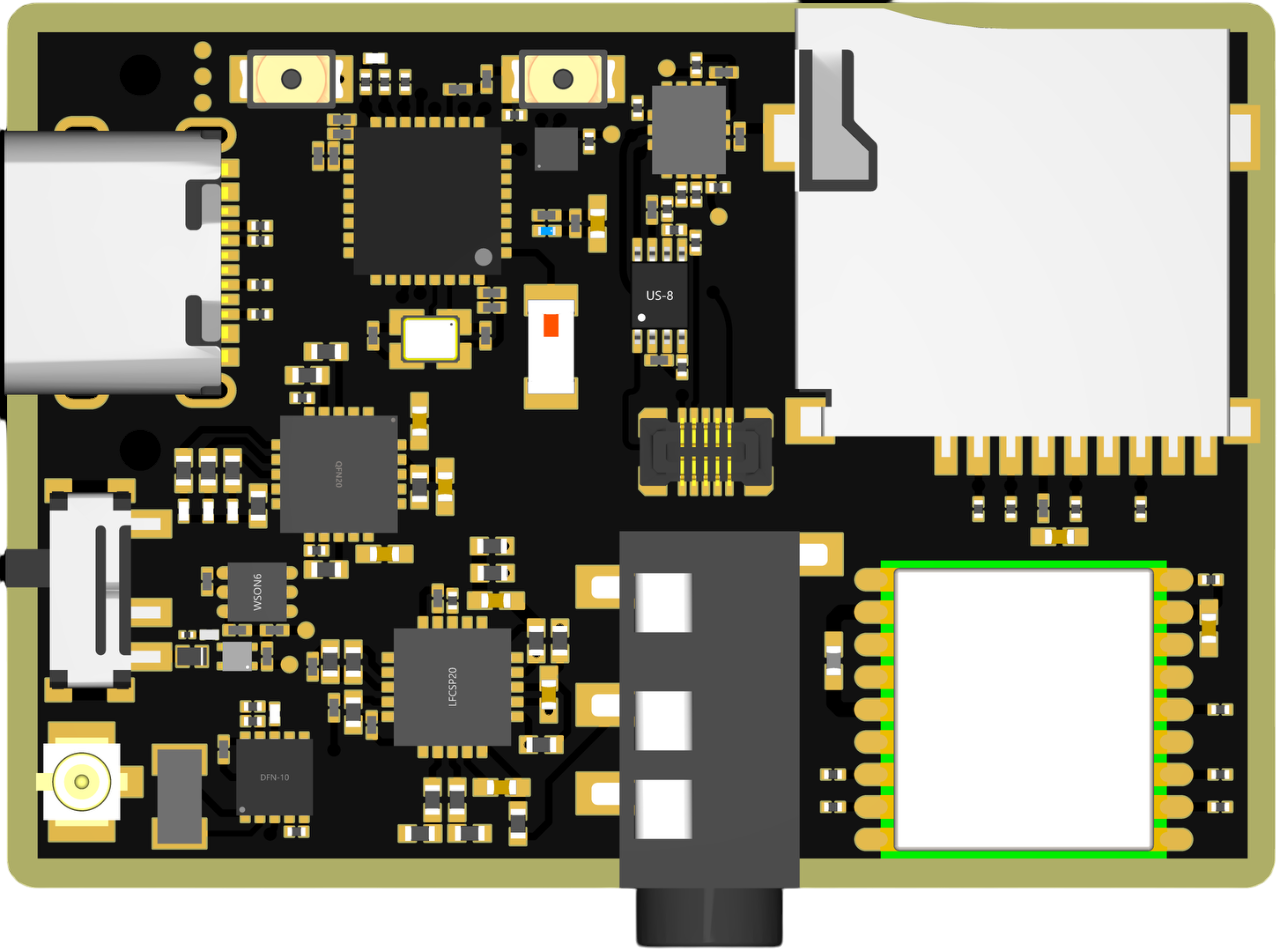
V1 Design
- Design July 2025 (Completed)
V1 was our first wearable tracker we ever designed. It included sensors such as GPS, Acceleration, Gyroscope, Temperature, Humidity and PPG based Heart Rate detection, powered by USB-C or battery our goal was to build a fully functional wearable in the first try.
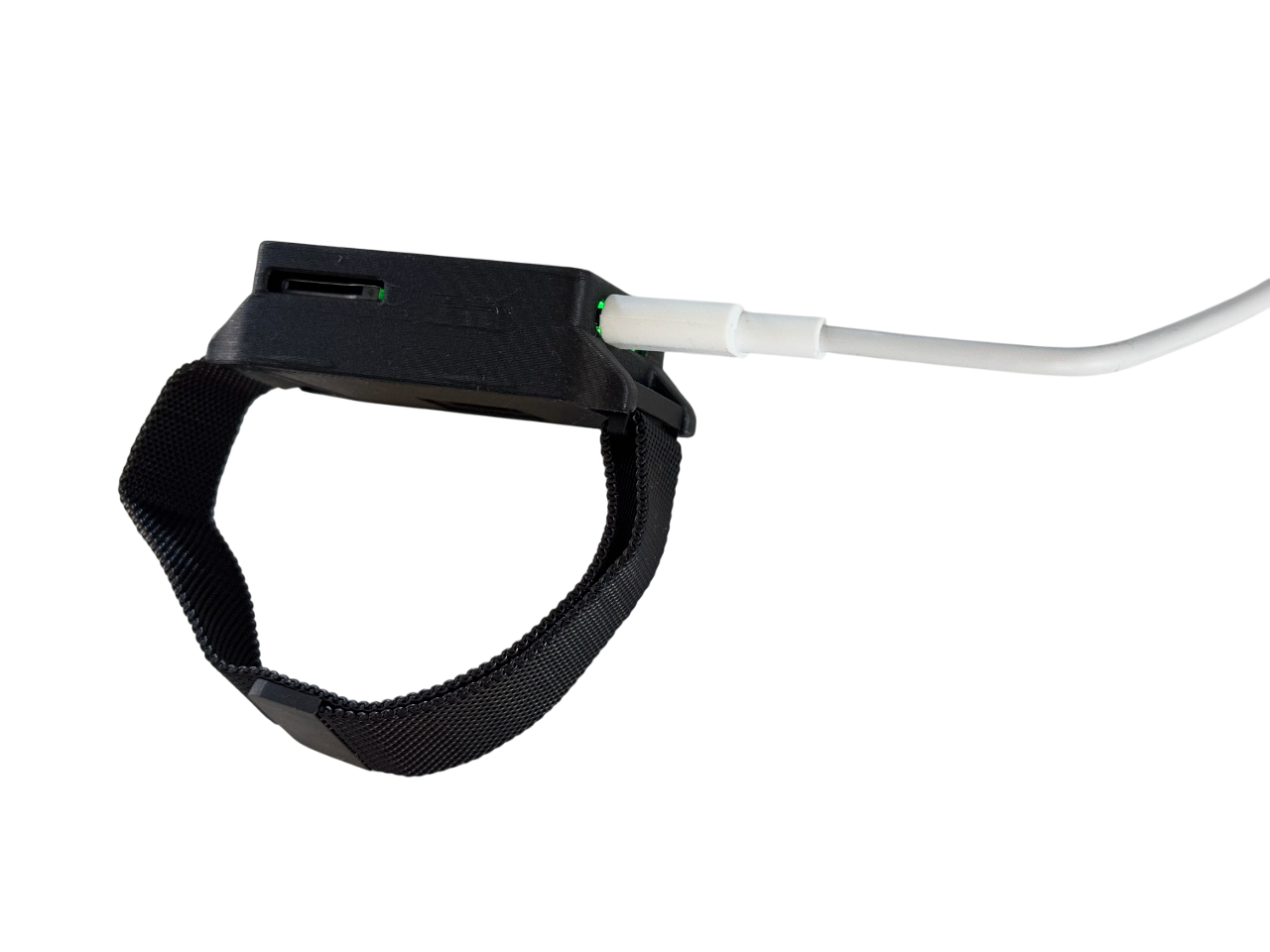
V1 Assembly
- Assembly August 2025 (Completed)
In August we assembled the first prototype. All 170 components were soldered by hand onto the PCBs and tested. Assembled in a first case we were able to successfully test GPS, Acceleration, Gyroscope, Temperature, Humidity and PPG sensors.
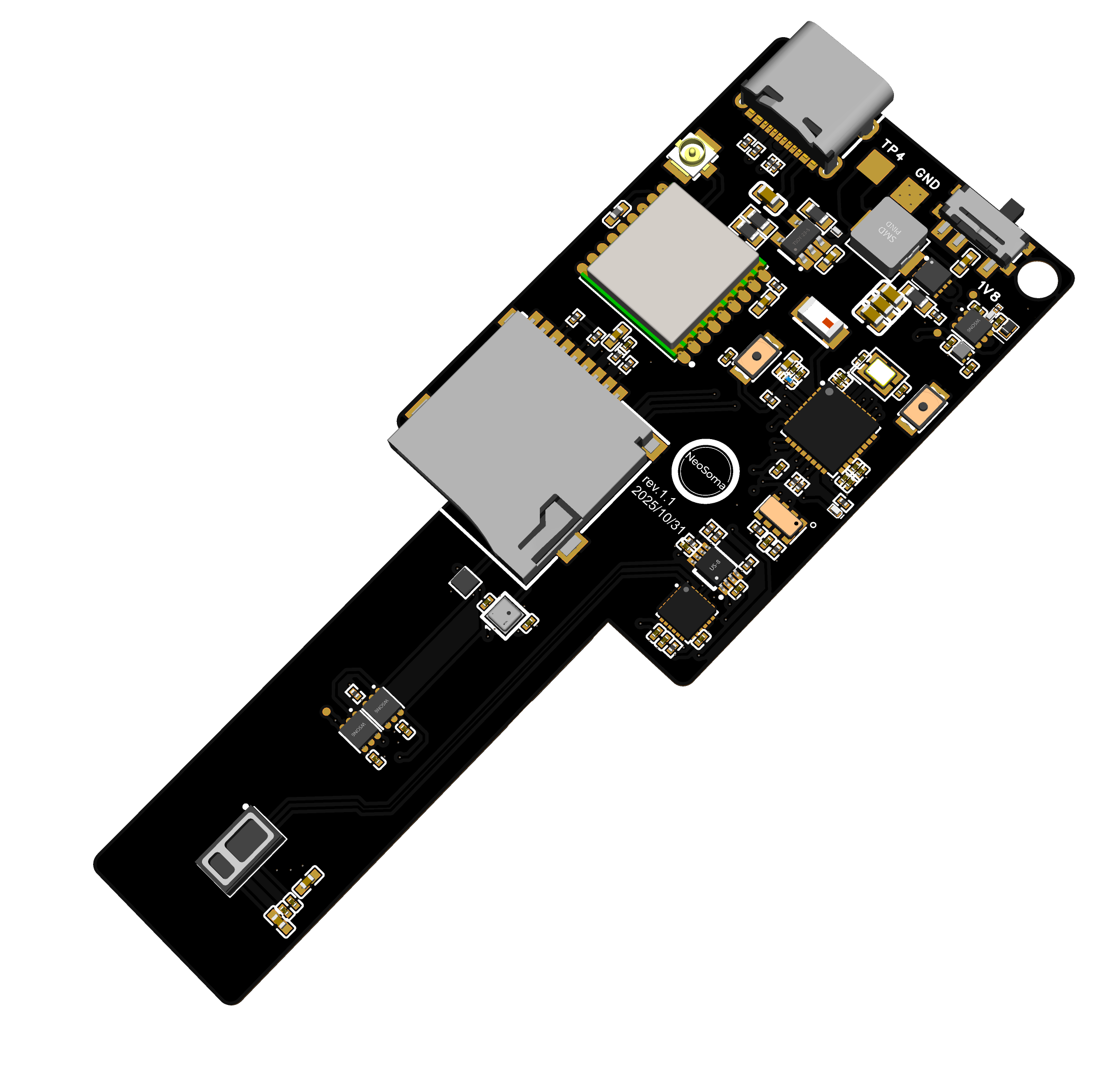
V1.5 Design
- October 2025 (Completed)
Using the learning from V1 we redesigned the prototype in October to fix key mistakes, as well as including new features such as 2 9DoF sensors.

V1.5 Assembly
- Assembly November 2025 (Ongoing)
Having learned from our first assembly by hand, the second version is mostly pre-assembled in manufacturing. However, two components were not available for pre assembly, the GPS module and the new 9DoF IMU.
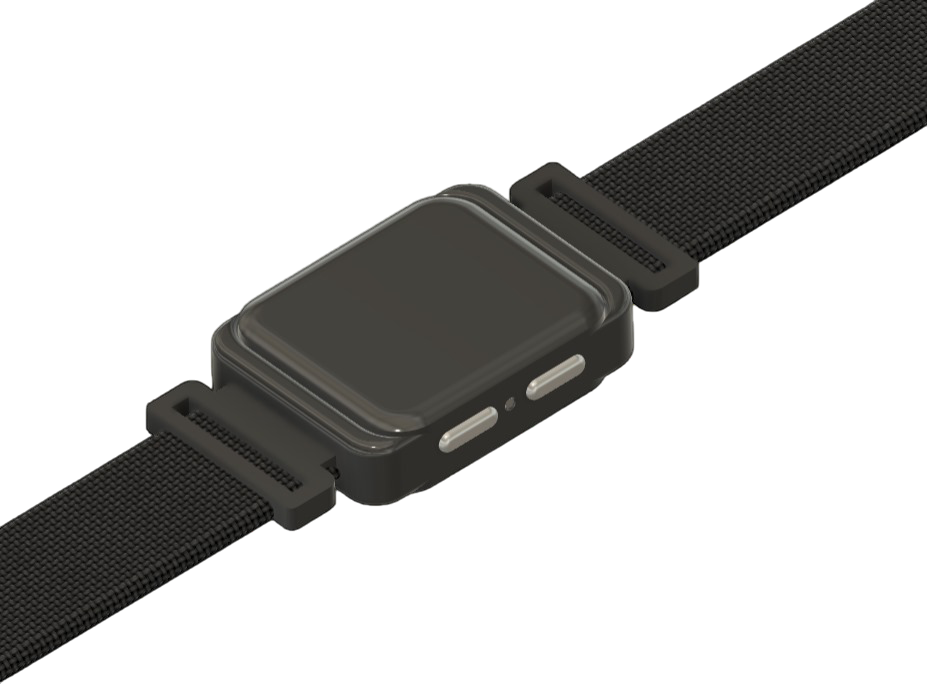
V2 Design & Assembly
- January - July 2026 (Planned)
V2 will be fully functional wearable sold as a prototype kit.
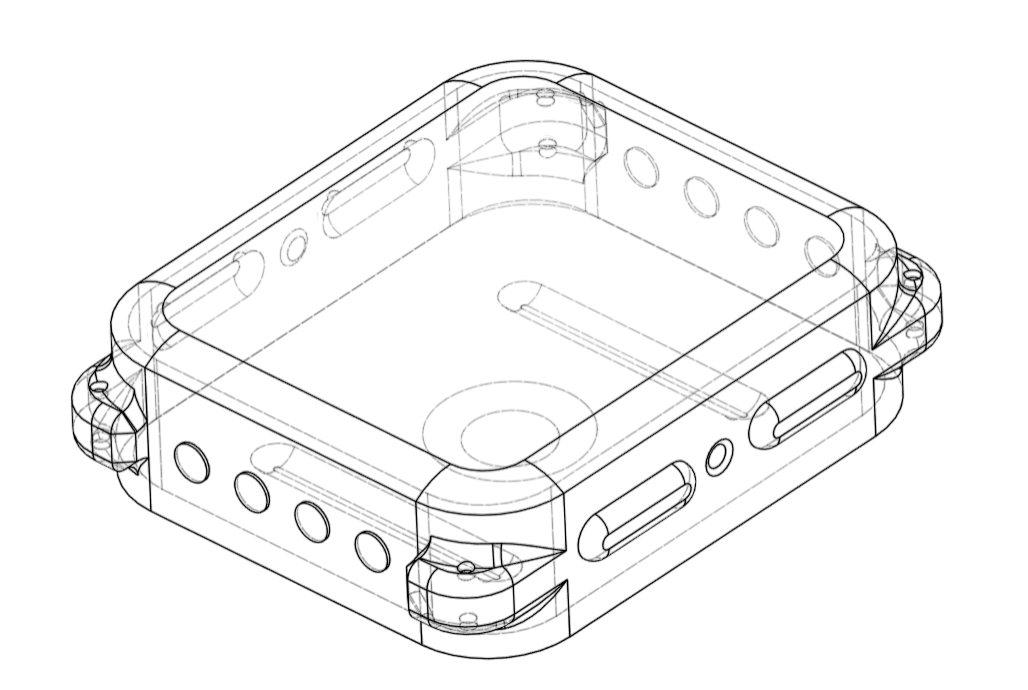
V3 & V4 Design & Assembly
- 2027 (Planned)
Our long term target is to include sensors for ECG and EDA measurements.
Ecosystem NeoSoma
We don’t want to create a locked system. We want collaborations and solutions build on our hardware.
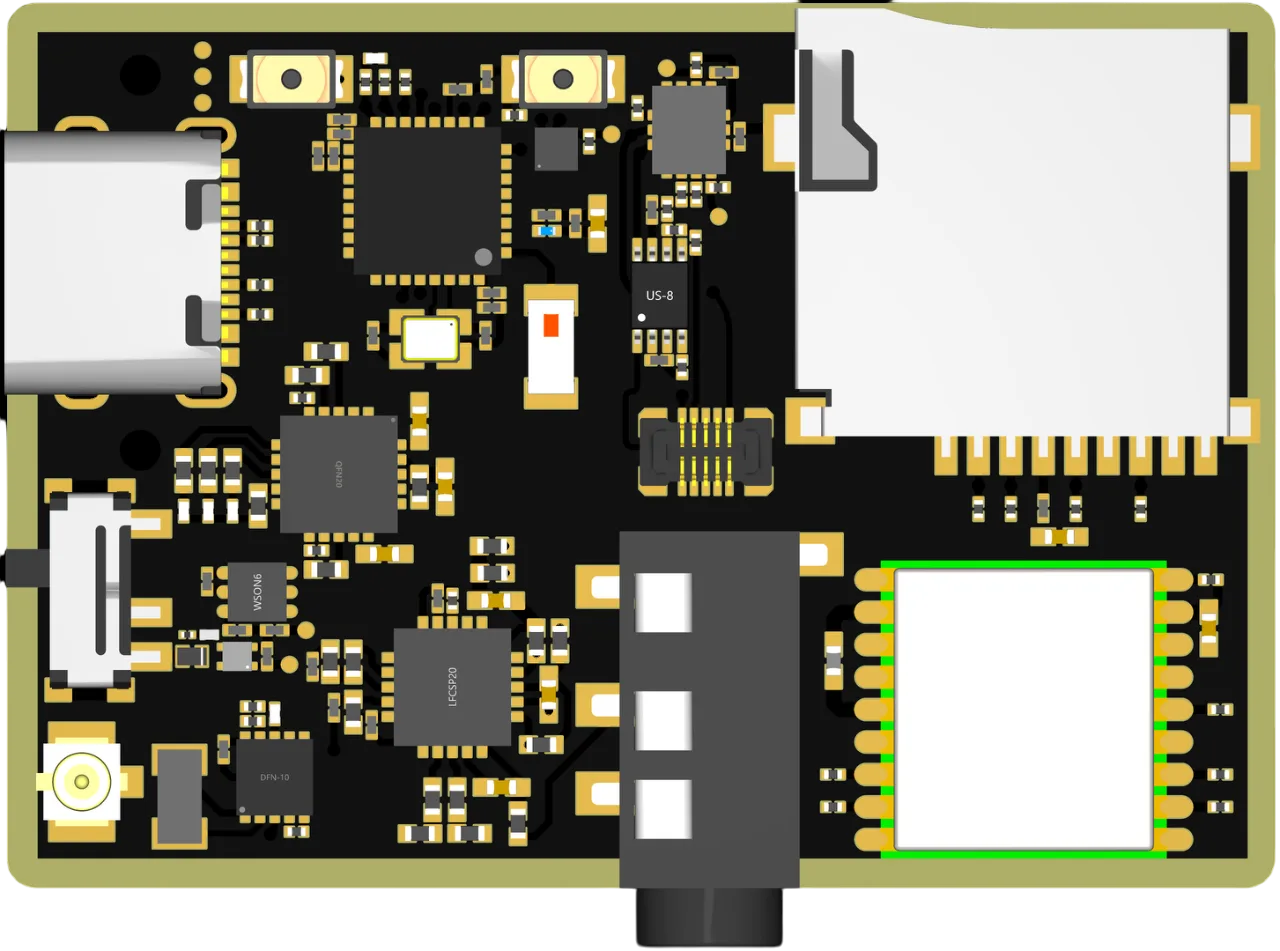
We build our own hardware.
We design the PCB ourselves. That means we have full control over the components we use and can integrate and adapt as required.
Integration
Want to integrate and test your own sensors? No, problem you can license our base design and adapt.

Easy Access
A base firmware and smartphone application will be available to use for everyone under an open source license.
Platform
We are building a platform ecosystem around the hardware. If you don’t need custom hardware or firmware your solution will be able to fully integrate with other developers applications.


